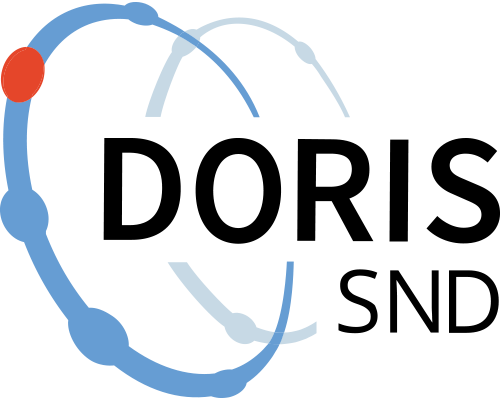SLOSH-study The Swedish Longitudinal Occupational Survey of Health
Citation and access
Citation and access
Data access level:
Creator/Principal investigator(s):
- Hugo Westerlund - Stockholm University - Stress Research Institute
Research principal:
Data contains personal data:
No
Citation:
Method and outcome
Method and outcome
Unit of analysis:
Population:
Personer i åldrarna 16-64 år i förvärvsarbete (i Sverige)
Time method:
Study design:
- Cohort study
- Observational study
Sampling procedure:
Description of sampling:
The sample for SLOSH consists of all individuals who responded to a Work Environment Survey (AMU) between 2003 and 2019. AMU is conducted by the Swedish Work Environment Authority and Statistics Sweden (SCB) and is based on the Labour Force Surveys (AKU), which are conducted annually. In these surveys, randomly selected individuals of working age are asked about employment. During the sampling for AKU, individuals are stratified by county, gender, citizenship, and employment status according to the employment register. The sample for the Work Environment Survey is a subsample of those who participated in AKU and were employed at the time of the interview.
Time period(s) investigated:
Description of the response rate/participation rate:
Response rate/participation rate: 2006: 65.4% 2008: 61.1% 2010: 56.8% 2012: 56.8% 2014: 52.5% 2016: 50.9% 2018: 48.2% 2020: 49.0% 2022: 42.5% 2023: 44.7% 2024: 45.1%
Data format/data structure:
Data collections - 11 collections
Data collections - 11 collections
Data collection - Self-administered questionnaire: Paper
Data collection - Self-administered questionnaire: Paper
Mode of collection:
Self-administered questionnaire: Paper
Time period(s) for data collection:
2006 - 2006
Sample size:
9154
Non response size:
3169
Source of the data:
- Population group
Data collection - Self-administered questionnaire: Paper
Data collection - Self-administered questionnaire: Paper
Mode of collection:
Self-administered questionnaire: Paper
Time period(s) for data collection:
2008 - 2008
Sample size:
18734
Non response size:
7293
Source of the data:
- Population group
Data collection - Self-administered questionnaire: Paper
Data collection - Self-administered questionnaire: Paper
Mode of collection:
Self-administered questionnaire: Paper
Time period(s) for data collection:
2010 - 2010
Sample size:
20291
Non response size:
8766
Source of the data:
- Population group
Data collection - Self-administered questionnaire: Paper
Data collection - Self-administered questionnaire: Paper
Mode of collection:
Self-administered questionnaire: Paper
Time period(s) for data collection:
2012 - 2012
Sample size:
17409
Non response size:
7529
Source of the data:
- Population group
Data collection - Self-administered questionnaire: Paper
Data collection - Self-administered questionnaire: Paper
Mode of collection:
Self-administered questionnaire: Paper
Time period(s) for data collection:
2014 - 2014
Sample size:
38657
Non response size:
18341
Source of the data:
- Population group
Data collection - Self-administered questionnaire: Paper
Data collection - Self-administered questionnaire: Paper
Mode of collection:
Self-administered questionnaire: Paper
Time period(s) for data collection:
2016 - 2016
Sample size:
38012
Non response size:
18652
Source of the data:
- Population group
Data collection - Self-administered questionnaire: Paper
Data collection - Self-administered questionnaire: Paper
Mode of collection:
Self-administered questionnaire: Paper
Time period(s) for data collection:
2018 - 2018
Sample size:
37043
Non response size:
19202
Source of the data:
- Population group
Data collection - Self-administered questionnaire: Paper
Data collection - Self-administered questionnaire: Paper
Mode of collection:
Self-administered questionnaire: Paper
Time period(s) for data collection:
2020 - 2020
Sample size:
35700
Non response size:
18211
Source of the data:
- Population group
Data collection - Self-administered questionnaire: Web-based (CAWI)
Data collection - Self-administered questionnaire: Web-based (CAWI)
Mode of collection:
Self-administered questionnaire: Web-based (CAWI)
Time period(s) for data collection:
2022 - 2022
Sample size:
51412
Non response size:
29545
Source of the data:
- Population group
Data collection - Self-administered questionnaire: Web-based (CAWI)
Data collection - Self-administered questionnaire: Web-based (CAWI)
Mode of collection:
Self-administered questionnaire: Web-based (CAWI)
Time period(s) for data collection:
2023 - 2023
Sample size:
50889
Non response size:
28136
Source of the data:
- Population group
Data collection - Self-administered questionnaire: Web-based (CAWI)
Data collection - Self-administered questionnaire: Web-based (CAWI)
Mode of collection:
Self-administered questionnaire: Web-based (CAWI)
Time period(s) for data collection:
2024 - 2024
Sample size:
50090
Non response size:
27500
Source of the data:
- Population group
Geographic coverage
Geographic coverage
Geographic location:
Administrative information
Administrative information
Responsible department/unit:
Stress Research Institute
Ethics Review:
Stockholm -
Funding
Funding
Funding agency:
- Swedish Research Council
Funding agency:
- FAS Centre for Global Health Research at the Medical Faculty of Umeå University
